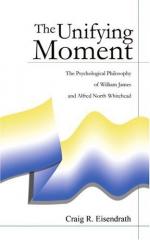|
This section contains 5,263 words (approx. 18 pages at 300 words per page) |

|
SOURCE: “The Ramifications of Whitehead's Theory of Experience,” in The Monist, Vol. 68, No. 4, October, 1985, pp. 439-50.
In the following essay, Ford studies Whitehead's concept of experience “as a unification of many past actualities.”
Whitehead's philosophy is thought by many to be a modern-day rationalism, yet the rationalistic criteria of logical consistency and coherence are balanced by the empirical criteria of applicability and adequacy. He understands metaphysics to be “the endeavour to frame a … necessary system of general ideas in terms of which every element of our experience can be interpreted. … Here ‘applicable’ means that some items of experience are thus interpretable, and ‘adequate’ means that there are no items incapable of such interpretation” (PR 4).1 Experience is fundamental. Without the appeal to experience we could not determine whether our metaphysical proposals pertained to the actual world or merely to its possible alternatives.2
Although there is a wealth of phenomenological...
|
This section contains 5,263 words (approx. 18 pages at 300 words per page) |

|


